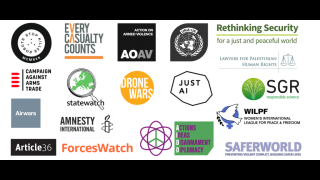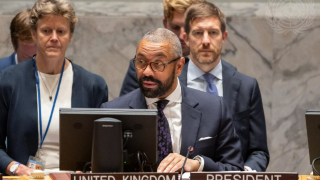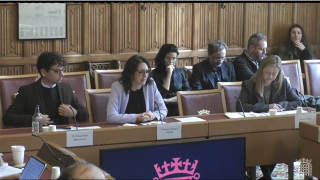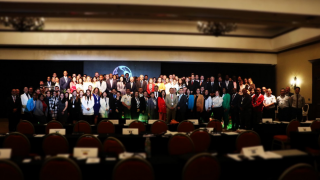
Historic opportunity to regulate killer robots fails as a handful of states block the majority. New hope for the start of treaty negotiations in 2022 as political leadership emerges.
The following is a press release written by the Campaign to Stop Killer Robots, of which UNA-UK is a member
It’s now clear that a minority of states including the US and Russia, already investing heavily in the development of autonomous weapons, are committed to using the consensus rule at the UN’s Convention on Conventional Weapons (CCW) to hold the majority of states hostage and block progress towards an international legal response to autonomy in weapons systems. Following the failure today of the 6th Review Conference of the CCW to agree steps to negotiate new law, there is recognition of the urgent need for a legal response which echoes the conditions that led to the creation of the landmine and cluster munitions treaties.
After 8 years of discussions with a clear majority of states consistently calling for the negotiation of new international law to ensure meaningful human control over the use of force, the 6th Review Conference has adopted a mandate that falls shockingly short of the outcome the world needs. States will continue CCW meetings next year without agreeing to work towards a specific goal.
Emerging political leadership shows promise that an external process is now likely and now looks to be the only pathway forward to achieve substantive progress. Austrian Foreign Minister, Alexander Schallenberg and New Zealand’s Minister for Disarmament and Arms Control, Phil Twyford have both called for the development of new international law regulating autonomous weapons. The new government coalition agreements of Norway and Germany promise to take action on this issue. There has been consistent cross regional leadership at the UN with 68 states calling for a legal instrument.
Thousands of tech and AI experts and scientists, the Stop Killer Robots campaign, Amnesty International, Human Rights Watch, the ICRC, 26 Nobel Laureates and wider civil society have called for new international law. The stage is now set for an external process on killer robots.
UNA-UK perspective
In a comment to the In Depth News network, UNA-UK's Head of Campaigns, Ben Donaldson, said:
“the outcome is tone deaf to the cries for urgent action from the majority governments, the tech community and the UN Secretary-General. It’s no coincidence that, despite eight years of discussion, this UN body has nothing to show for it while military investments in autonomous weapons and swarming robots have skyrocketed"
"The handful of powerful states developing these weapons are the same states responsible for blocking progress through the creation of new legally binding rules,”
“The limits of the CCW as a forum have been laid bare. But a strong coalition of states, civil society and tech leaders are determined to make progress. The successful cluster munitions and landmines treaties have shown that progress can be made outside the UN and progressive states look ready to step up to the plate. In 2022 we expect the majority who are serious about ensuring the decision to kill is never outsourced to a machine will start work on a new treaty to ban these weapons. Those states guilty of blocking action at the UN will have to decide “which side of history do we want to be on?”
A further comment by one of our campaign partners: Amnesty International, was published by inews.co.uk
Image: Extract from interactive social media action to raise awareness about the dangers of killer robots, launched by the Campaign to Stop Killer Robots and Amnesty International with assistance from UNA-UK in London, November 2021






